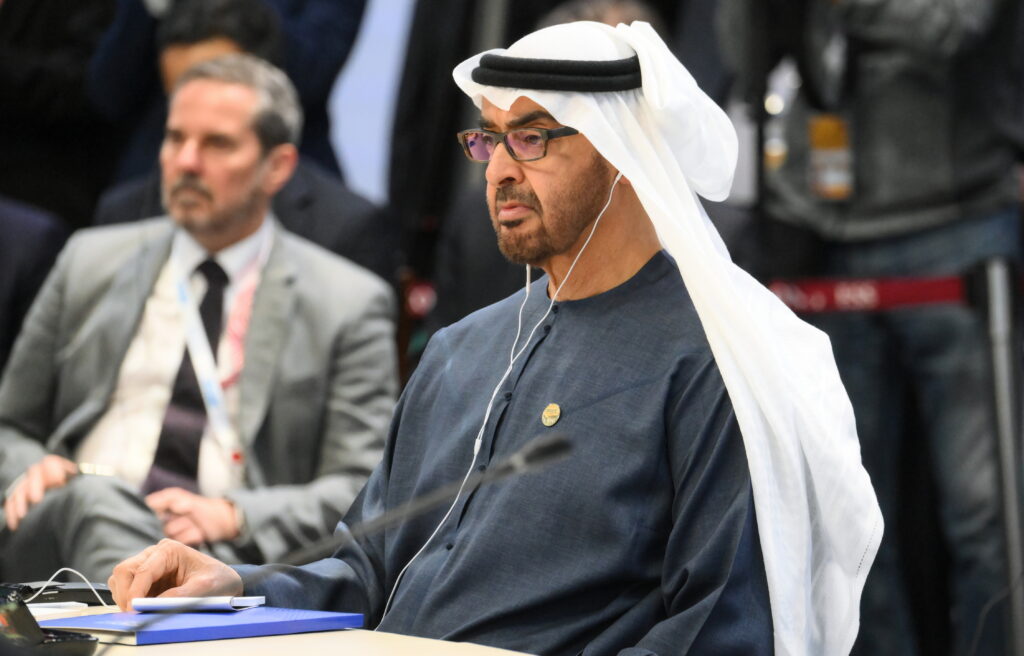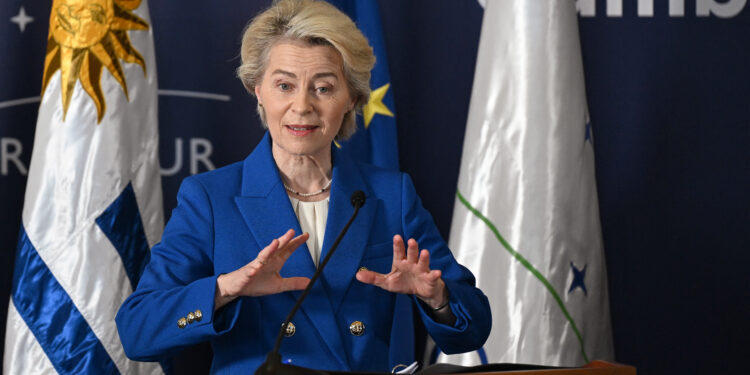Brussels – The second Trump term is forcing the EU to look around and seek new global trading partners. After opening the door to China, India, Mexico, and Mercosur countries, Brussels is now turning to Canada, the United Arab Emirates, and New Zealand to try to save the international economic architecture, which the decisions of the New York tycoon have shaken.
The White House’s temporary suspension of tariffs (reciprocated with a parallel pause in the EU countermeasures) was a shot in the arm for the Old Continent. Still, no one on this side of the Atlantic is under any illusions that the future of global trade is rosy, certainly not Ursula von der Leyen, who yesterday (April 10) got on the phone to hear from several world leaders and deepen — or begin to weave — economic ties.
The head of the EU executive had an important call with Sheikh Mohammed bin Zayed Al Nahyan, the president of the United Arab Emirates, one of the most important economic and strategic players in the Persian Gulf and the Middle East in general. Brussels and Abu Dhabi will begin talks to enter into a free trade agreement (FTA) that, a Commission statement says, will “strengthen EU-UAE bilateral relations and contribute to the prosperity of the entire region” in the Middle East and may “serve as a catalyst for strengthening ties between the EU and the Gulf Cooperation Council” (GCC).
“Open trade and mutual benefits” are the goal, contrasting the closures and mutual damage resulting from US tariffs. The following negotiation steps “will focus on liberalizing trade in goods, services, and investment while deepening cooperation in strategic sectors such as renewable energy, green hydrogen, and essential raw materials,” according to the statement

Another phone call was with Mark Carney, the new Canadian prime minister who succeeded Justin Trudeau last month. The readout of the conversation released by the commission describes Ottawa as a “trusted partner and ally,” reiterating the importance of bilateral cooperation not only in the economic sphere but also in security and defense matters.
Regarding the first aspect, von der Leyen claimed the “success” of CETA, the free trade agreement between Canada and the 27 member states signed in 2016 and provisionally applied since the following year for most of its provisions, although not yet formally in force, which proves “the EU’s strong commitment to open and predictable trade.” Brussels intends to “work closely with Canada on the global trading system reform, including through enhanced cooperation” with member countries of the Trans-Pacific Partnership Agreement (CPTPP).
On the strategic front, the president particularly emphasized the “strong joint support for Ukraine,” including within the coalition of the willing — seeking to act under Franco-British leadership — when Washington appears on the verge of abandoning Kyiv to reach a separate agreement with Moscow.
Three’s a charm: von der Leyen called New Zealand’s premier, Christopher Luxon. In May, it will be the first anniversary of the FTA between Brussels and Wellington, and the Commission president said she was “eager to deepen ties” with the country, which is also part of the CPTPP along with Canada. Von der Leyen also thanked Luxon for New Zealand’s “continued support” for Ukraine, again as part of the coalition of the willing.
English version by the Translation Service of Withub

![La riunione dell'Eurogruppo a Varsavia [11 aprile 2025]](https://www.eunews.it/wp-content/uploads/2025/04/eurogruppo-250411-350x250.png)
![La presidente della Commissione europea, Ursula von der Leyen, alla conferenza annuale degli ambasciatori [Bruxelles, 4 febbraio 2025]](https://www.eunews.it/wp-content/uploads/2025/02/vdl-ambasciatori-350x250.png)



